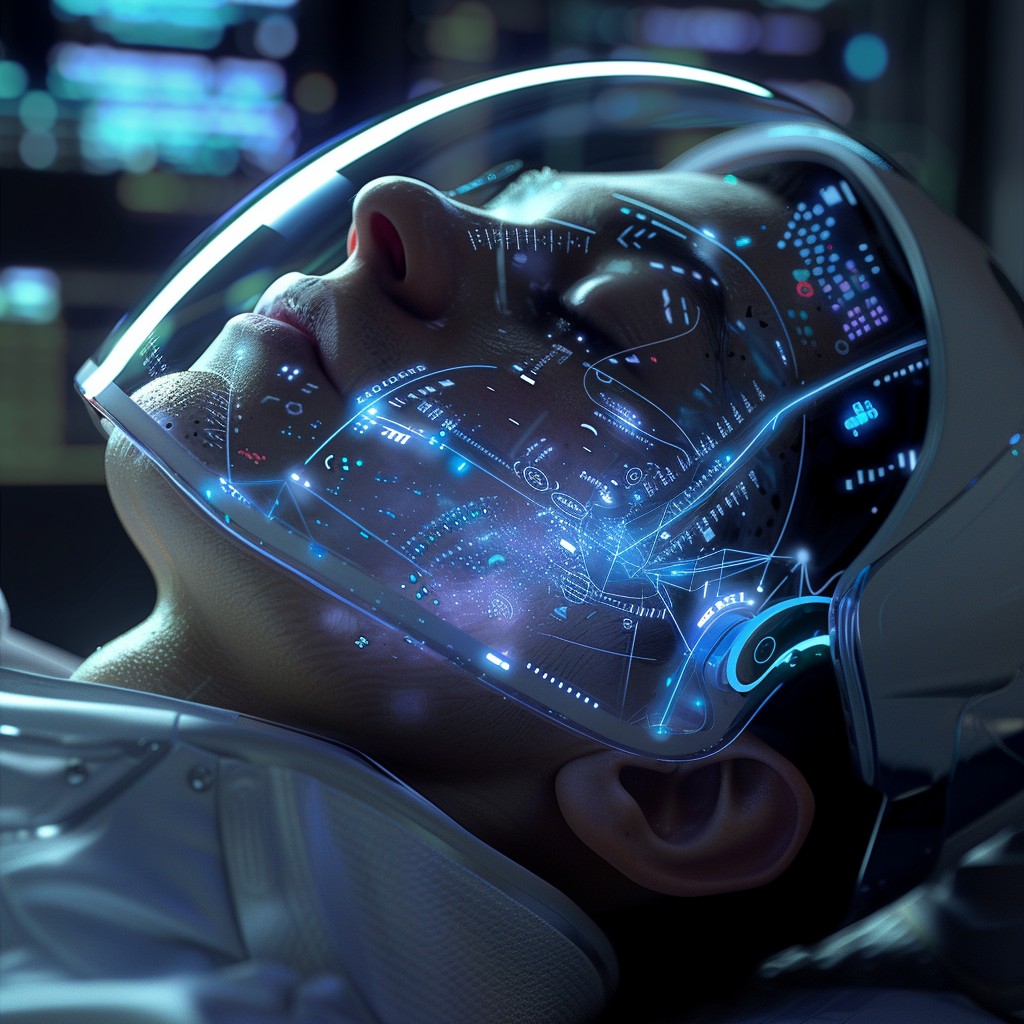Lucid dreams enter a new era as technology takes a leap into the subconscious. Meet Morpheus-1, the brainchild of Prophetic, a pioneering AI system that’s reshaping the boundaries between reality and imagination. Named after the Greek god of dreams, Morpheus-1 is breaking new ground, offering a tantalizing glimpse into the future of human consciousness.
Exploring lucid dreaming
Lucid dreaming, where one becomes aware of being in a dream and can even control it, is no longer confined to the realms of science fiction. With Morpheus-1, this phenomenon is becoming a tangible reality. By monitoring brain activity during REM sleep, Morpheus-1 taps into the potential of lucid dreaming, offering a pathway to explore the depths of the subconscious.
At the heart of Morpheus-1 lies a fusion of advanced technologies. Using a combination of EEG and MRI technology, Morpheus-1 detects REM sleep with unparalleled precision. This complex monitoring system provides detailed insights into brain activity, laying the groundwork for the manipulation of dreams.
Morpheus-1 doesn’t just observe dreams—it actively influences them. Through the use of transcranial focused ultrasound stimulation (tFUS), Morpheus-1 can modulate neuronal activity in targeted regions of the brain. This non-invasive technique offers a level of precision never before seen, opening doors to controlled exploration within the dream world.
The generative ultrasonic transformer
Driving Morpheus-1’s capabilities is its sophisticated AI architecture, known as the generative ultrasonic transformer. With 103 million parameters, this transformer processes EEG and MRI data simultaneously, generating spatial targets for brain stimulation. Through intricate training phases, the transformer learns to predict and induce specific brain states associated with lucid dreaming.
Beyond the realm of exploration and creativity, Morpheus-1 holds promise for therapeutic applications. The ability to induce and control lucid dreaming could revolutionize therapy for conditions such as PTSD and anxiety. By providing a safe space to confront and process subconscious fears, Morpheus-1 offers a novel approach to mental health treatment.
As with any groundbreaking technology, Morpheus-1 raises ethical concerns. Questions of consent, privacy, and the authenticity of mental experiences loom large in discussions surrounding its implementation. While the potential benefits are clear, careful consideration must be given to the ethical implications of diving into the depths of the human mind.
The future of dreams
In the world of AI and neuroscience, Morpheus-1 represents a bold step forward. Its ability to seamlessly integrate with the subconscious opens doors to a myriad of possibilities. From therapy to creativity, the implications of Morpheus-1 are vast and far-reaching.
As Morpheus-1 blurs the line between dreams and reality, it invites us to ponder the nature of consciousness itself. With each new advancement, we inch closer to unlocking the mysteries of the mind. Whether it’s therapy, creativity, or simply a journey into the unknown, Morpheus-1 offers a glimpse into a future where dreams are no longer confined to the night. Welcome to the dawn of a new era in human consciousness.
From Zero to Web3 Pro: Your 90-Day Career Launch Plan
 Lucid Dreams
Lucid Dreams